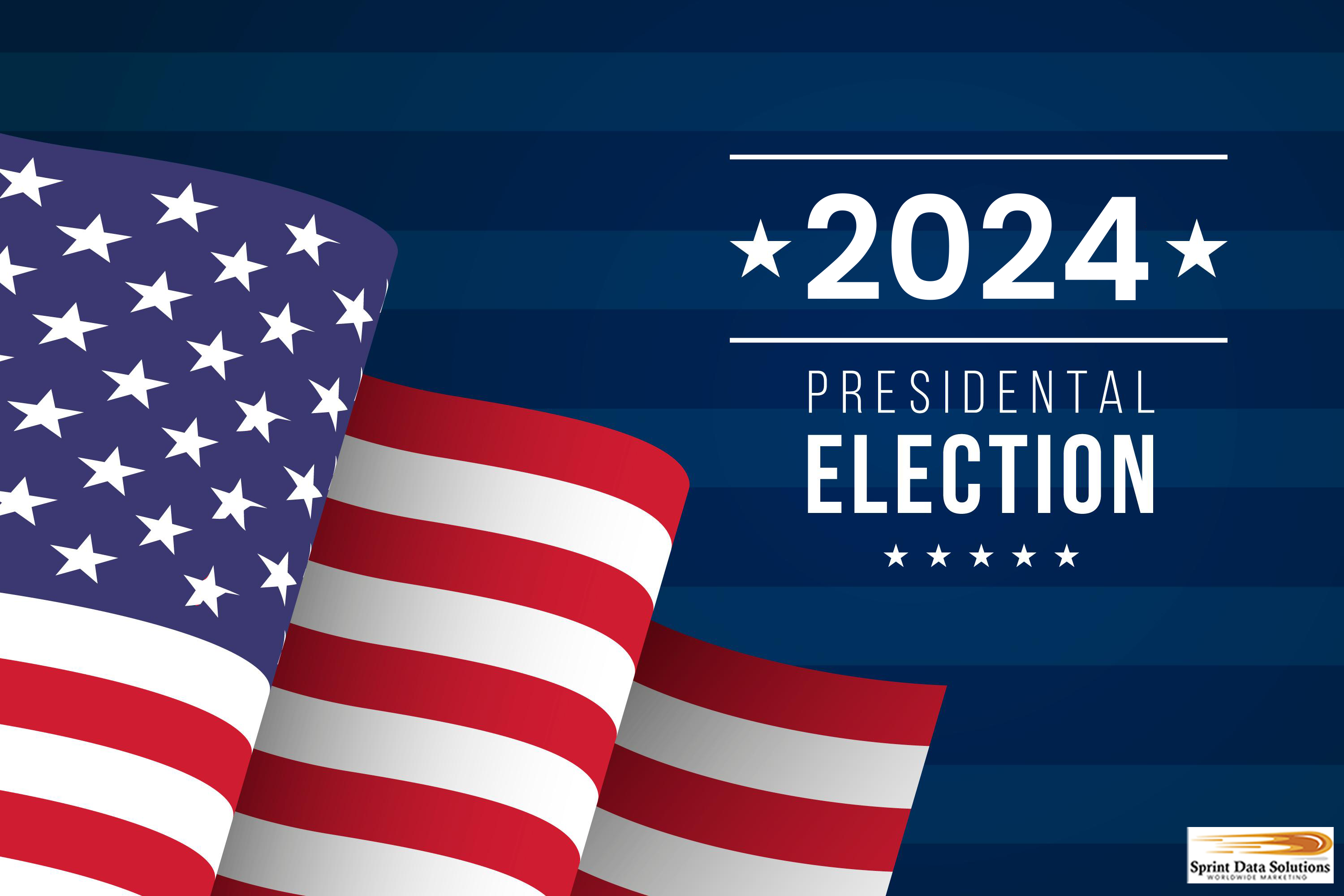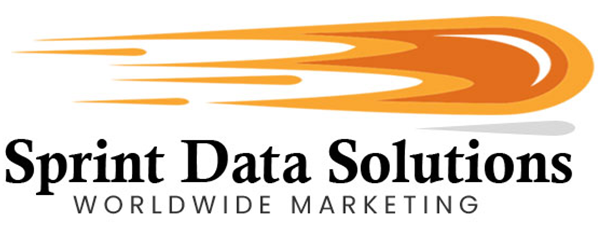Registered Voter Mailing List
The United States is one of the few countries that, from its inception, has been governed by a democracy, where it is the citizens themselves who decide, en masse, who will represent their interests. Unlike many nations, this democratic process takes place at all levels, from the local, county, state, and, of course, national levels. Whether it is choosing who will govern a city or the entire country, Americans are one of the few people on Earth who have always had a choice about who that leader will be.
Because of this, the democratic process centers around the election, a large-scale effort that involves campaigns to generate awareness and present candidates who then address the public with their arguments about why they should be granted the position they are running for. From there, the election itself is held where citizens, on the appointed day, either go to a physical location to vote or, if they so choose, use official documents sent through the postal service as mail-in votes. The United States no longer requires that people only vote if they can arrive at a certain physical location during specified hours. This has made the process more democratic, allowing people with mobility issues who may not be able to physically enter a building to still have their votes counted. In the same way, people who work hours that may not make it possible for them to vote during the designated hours can still cast their ballot thanks to mail-in voting, without having to risk their livelihood to do so.
However, the democratic process is ongoing work. The United States is now at a point where the entire nation is “between elections” in terms of voting for the country’s leadership, the Presidency. But other elections are always ongoing, such as local, county, and state elections. And, of course, the preparations for a national election will be underway this year as the massive campaign machines of the two dominant parties once again lumber into action while many independents also participate in the democratic process.
Sprint Data Solutions Worldwide Marketing has worked with political organizations for many years to help keep the machinery of democracy operating. As the nation prepares for another election, Sprint Data Solutions Worldwide Marketing is prepared to do so again.
About Sprint Data Solutions Worldwide Marketing
Sprint Data Solutions Worldwide Marketing was founded by a disabled veteran determined to continue serving the nation—not on the battlefield, but in the economic arena. After years of honorable military service and personal sacrifice, the company’s founder chose to pursue a new mission: supporting American businesses in their pursuit of growth by expanding their customer base and boosting revenue. Rooted in the heart of Las Vegas, Nevada, what began as a modest, local operation quickly evolved into a nationwide force in the marketing industry. This transformation was driven by an unwavering commitment to quality, a customer-centric approach, and the invaluable expertise of a dedicated team with over five decades of combined experience in marketing and promotional services.
The company’s origins trace back to a period before digital marketing had taken hold, focusing initially on direct mail marketing—a discipline that laid the foundation for modern data-driven outreach strategies. Through meticulous data collection and segmentation, Sprint Data Solutions built a powerful database infrastructure encompassing names, mailing addresses, and key demographic attributes, empowering clients to launch highly targeted campaigns with measurable success. This strategic advantage catalyzed steady expansion beyond Nevada to cover the entire continental United States, and later extended to Alaska and Hawaii, solidifying its national presence.
Capitalizing on this momentum, the company set its sights on broader horizons, expanding into neighboring North American markets such as Canada and Mexico. With proven methods and a reputation for excellence, Sprint Data Solutions eventually crossed international borders, providing clients with access to lucrative overseas markets, including major European Union countries like France. Today, the company stands as a proud, 100% American-owned enterprise, embodying resilience, innovation, and dedication to helping businesses thrive—both domestically and globally.

Elections Are Different In The New Millennium
The democratic process has undergone a significant transformation over time, particularly in the methods by which candidates engage with and court voters. While the fundamental objectives of political campaigning have remained constant—to persuade constituents of a candidate’s suitability for public office—the strategies used to achieve this aim have evolved dramatically. Whether the contest is for local council, state legislature, or national leadership, the candidate must demonstrate both moral integrity and professional competence. This involves articulating a clear policy platform and making credible promises about the actions they intend to take if elected to a position of authority.
Historically, in the absence of mass communication tools, campaigning was a personal endeavor, centered around physically visiting key constituencies to deliver speeches, shake hands, and connect face-to-face with the electorate. These visits were often bolstered by printed materials like posters, flyers, and pamphlets to disseminate information. The introduction of radio revolutionized this process, extending a candidate’s voice across vast distances and bringing live or recorded speeches and interviews into the homes of millions. It allowed a broader reach than in-person visits while still maintaining a personal touch through the intimacy of audio communication.
The rise of television further transformed campaigning, adding a powerful visual dimension. Candidates were now judged not only by what they said, but how they looked and behaved while saying it. Television introduced new campaigning staples like televised debates, image-driven advertisements, and prime-time interviews, all of which shaped public perception and voter behavior. Appearance, charisma, and body language took on new importance, making media training and presentation skills essential parts of a successful campaign.
The digital age, driven by the Internet, has once again reshaped the landscape of political campaigning. Unlike previous media, the Internet offers both real-time interaction and a vast archival of content accessible anytime. Social media, targeted advertisements, email newsletters, campaign websites, and streaming platforms allow candidates to reach voters on a more personalized and immediate level. Data analytics has become a powerful tool, enabling campaigns to construct detailed profiles based on users’ browsing habits, social affiliations, and online behavior. This information is often shared among platforms and organizations, allowing for increasingly precise microtargeting.
Moreover, the Internet has decentralized content consumption. No longer do audiences have to wait for a scheduled program—they can access speeches, interviews, debates, and campaign ads on demand. This “anytime, anywhere” accessibility, combined with the viral nature of digital sharing, means campaign messages can spread exponentially without the limitations of traditional broadcast schedules. It has also made political discourse more interactive, allowing voters to respond, comment, and engage directly with campaigns, often influencing the conversation in real-time.
In essence, while the mission of campaigning remains the same—to win the hearts and minds of the electorate—the means have shifted from physical outreach and mass broadcasting to a hyper-targeted, data-driven digital engagement strategy. Each technological advancement has built upon its predecessor, reshaping not just how messages are delivered, but how politics itself is practiced in the modern age.
Who Benefits
Sprint Worldwide Solutions Marketing offers a comprehensive and meticulously curated collection of contact lists that span a wide spectrum of categories. These databases include detailed contact information for both consumers and businesses, as well as a variety of other organizations across different industries and regions. Whether the goal is commercial outreach, strategic communication, or engagement with niche demographics, these lists provide valuable tools for tailored marketing efforts. Of particular note is the company’s inclusion of politically-oriented lists, which go beyond individual contacts to encompass influential groups and affiliations, enabling targeted political engagement and mobilization. These resources empower clients to drive campaigns, build relationships, and take informed action across consumer, corporate, and civic landscapes.
Registered Voter Mailing Lists
The foundation of American democracy rests firmly on the shoulders of individuals who have taken the critical step of registering to vote. This act, while simple in execution, reflects a conscious decision to engage with the civic process and have a voice in shaping the nation’s future. Voter registration requirements vary by state—some jurisdictions mandate registration well in advance of an election, while others allow same-day registration, making it more accessible to last-minute participants. In certain states, voters may also need to declare a party affiliation—such as Democrat, Republican, or Independent—which can influence their participation in primary elections, although this is not universally required.
Regardless of these procedural differences, what remains consistent is the civic commitment demonstrated by registered voters. These individuals have crossed the threshold from passive observers to active contributors in the democratic system. As such, they represent a particularly valuable and engaged segment of the population when it comes to political outreach. Their willingness to register signals a higher level of interest in current affairs and public discourse, making them more receptive to messaging related to political campaigns, advocacy, and civic engagement efforts. This elevated receptiveness underscores the strategic importance of targeting registered voters in any politically focused marketing or communications initiative.
State Voters Mailing Lists
While the presidential election captures the most media attention and public discourse in the United States, it is often the state-level elections that have the most immediate and tangible impact on people’s daily lives. These elections determine not only who will govern as the state’s executive, such as the governor, but also who will represent citizens in the state legislature and, in many cases, in the U.S. Senate and House of Representatives. State leaders make critical decisions on issues such as education, public health, infrastructure, taxation, law enforcement, and social services—areas that directly shape the quality of life in local communities. As a result, state voters play a pivotal role in steering the direction of these policies through their choices at the ballot box.
Effectively engaging voters in state-level political campaigns is critical, as decisions made at this level often have the most immediate and tangible impact on citizens’ lives. Unlike national elections, where federal policies may take years to materialize or feel abstract to many, state-level governance directly affects issues such as public school quality, Medicaid expansion, zoning laws, police accountability, and environmental standards in local communities. A successful state candidate holds the power to influence how budgets are allocated, how laws are enforced, and how services are delivered, often shaping residents’ daily experiences far more than distant federal authorities. As such, voter outreach should not only inform but also empower—linking each policy proposal to the lived experiences of constituents. Effective messaging must underscore the urgency and relevance of state elections, framing them as vital opportunities for voters to assert control over pressing local issues. By making these connections clear and emphasizing the disproportionate influence of state leadership on critical matters, campaigns can cultivate a more informed, motivated, and participatory electorate—ultimately laying the groundwork for systemic change that starts at the community level.
National Voter Mailing Lists
Political marketing efforts often require extensive outreach strategies to effectively engage the widest possible audience. In the case of major elections—such as presidential campaigns or initiatives addressing national or federal-level issues—it becomes essential to access broad and comprehensive voter databases, including national voter mailing lists. These lists enable campaign teams to target voters across all regions and demographics, ensuring that key messages are distributed uniformly and at scale. Utilizing such expansive data sources allows for more strategic segmentation, personalization, and timing of communications, which are crucial factors in influencing voter perception and turnout. Additionally, national mailing efforts can support broader campaign goals like brand recognition, issue advocacy, and grassroots mobilization, playing a pivotal role in the success of high-stakes political campaigns.

Voter Precinct Mailing Lists
Voting precinct mailing lists play a pivotal role in effective political strategy, especially when it comes to grassroots-level campaigning. These lists provide detailed information on registered voters within specific subdivisions of larger electoral districts—commonly referred to as precincts. Access to such targeted data allows political campaigns, advocacy groups, or civic initiatives to focus their messaging and outreach precisely where votes are cast. Whether for local municipal elections or national contests, knowing exactly who resides in each precinct and how to reach them by mail is invaluable. This enables tailored political communication, mobilization efforts, and voter turnout strategies that are responsive to the demographics and concerns of a localized electorate. For any political action that needs to connect directly with eligible voters at the community level, precinct mailing lists are an essential resource that can make the difference between a message being heard—or missed.
Political Donor Mailing List
Beyond simply casting a ballot during election season, many Americans feel a deeper sense of responsibility toward the democratic process and choose to support political movements or candidates through financial contributions. Political campaigns are notoriously expensive undertakings, often requiring millions of dollars for advertising, staffing, travel, events, and digital outreach. This is where political donations—large and small—become indispensable. Donors come from every segment of society and contribute for a variety of reasons. Many working-class individuals, despite tight budgets, are moved by compelling issues or inspiring candidates to part with some of their limited income. Middle-class donors, often more financially stable, tend to contribute to causes that align with their values or policy priorities. At the top of the donor hierarchy are the wealthy elite, who frequently make large contributions with the hope of advancing specific legislation or influencing political discourse. For these high-net-worth individuals, political giving may be both ideological and strategic, serving not only as civic engagement but also as an investment in policies that may impact their industries, taxes, or regulatory environments. This mosaic of financial support reflects the diverse motivations that fuel American democracy beyond the voting booth.
Conservative Political Donors
In a political landscape dominated by two major parties, it’s expected that donors will gravitate toward ideologies that reflect their values. Conservative donors, who predominantly align with the Republican Party, frequently support initiatives and policies that promote limited government intervention, traditional family values, and a strong national defense. Their contributions often bolster causes such as Second Amendment rights, the promotion of Christian values in public life, and the enforcement of stricter immigration regulations. These donors tend to coalesce around candidates and organizations that advance these shared objectives. For individuals engaged in conservative political efforts—especially during pivotal moments like election cycles—conservative donors represent a crucial source of financial backing, strategic support, and grassroots mobilization, helping to amplify messages that resonate with right-leaning constituents across the nation.
Liberal Political Donors
Liberal political causes in the United States have long played a crucial role in shaping public policy and social progress, often aligning with the Democratic Party on key issues. These causes champion a wide range of priorities, including reproductive rights, LGBTQ+ equality, climate change mitigation, access to quality healthcare, racial justice, and the expansion of social safety nets such as education and housing support. In recent years, liberal activism has intensified in response to perceived rollbacks in civil liberties and judicial decisions that threaten foundational rights—most notably the Supreme Court’s 2022 decision to overturn Roe v. Wade, which eliminated the federal constitutional right to abortion. This has mobilized a surge of grassroots support, fundraising efforts, and policy advocacy aimed at protecting vulnerable communities and advancing progressive values. Organizations and donors across the country have become increasingly strategic and coordinated, investing heavily in campaigns, legislation, and voter turnout efforts to push back against conservative policies. This heightened engagement reflects a broader recognition among progressives that sustained political involvement is essential to safeguard democracy, ensure equity, and promote inclusive governance.
Independent Voter Mailing List
While many Americans align themselves with one of the two dominant political parties—Democratic or Republican—there exists a significant segment of the electorate that prioritizes policy alignment over party loyalty. These voters, often identifying as independents, evaluate candidates based on specific policy positions rather than partisan affiliation. Although independents may be excluded from participating in closed primaries, where only registered party members can vote for their party’s presidential nominee, they play a crucial role in general elections, local contests, and issue-based campaigns. Their influence extends beyond the ballot box, as they also contribute to political fundraising efforts when a candidate’s platform resonates with their interests. Because independents are typically driven by particular social, economic, or environmental concerns, effectively engaging them requires a nuanced understanding of their values and clear communication of shared ideological goals. Tailoring outreach strategies to address these voters’ unique perspectives can be pivotal in tight races, making them a powerful force in shaping policy and political outcomes.
Undecided Voters Mailing List
Undecided voters represent a critical yet frequently underestimated segment of the electorate. These individuals are not disengaged from the political process; in fact, they are often highly attentive and open to persuasion. What distinguishes them is not apathy, but rather a lack of commitment to a specific candidate or party at the time of decision-making. This indecision may stem from complex views on key issues, dissatisfaction with current options, or a desire for more information before making a responsible choice.
In tightly contested elections where the margins between candidates are razor-thin, undecided voters can wield disproportionate influence. Their eventual choices often sway the final outcome, especially in swing states or districts where no party has a strong hold. Unlike voters with firm political affiliations, winning over the undecided requires nuanced, targeted engagement—clear messaging, credible policies, and authentic representation. Political campaigns that invest in understanding the concerns and motivations of these voters—and in building trust—stand a better chance of tipping the balance in close races.
Historical voting trends have consistently shown that even a modest shift in undecided voter preferences can alter the direction of an election. Thus, while they may be numerically smaller than party loyalists, undecided voters possess a decisive potential that makes them one of the most strategically important groups in any democratic contest.
Political Activists Mailing Lists
Political activism extends far beyond financial contributions or fulfilling basic civic duties; it embodies a profound commitment of time, energy, and personal effort toward shaping societal and governmental outcomes. Activists play a vital role in the democratic process by directly engaging in efforts that influence public opinion, policy-making, and electoral outcomes. Their involvement can take on numerous forms, from grassroots activities such as door-to-door canvassing, voter registration drives, and organizing community meetings, to participating in large-scale rallies and demonstrations that draw public and media attention to key issues.
Moreover, political activists often serve as crucial liaisons between the general public and political organizations or candidates, helping to communicate ideas, mobilize support, and advocate for change. Their dedication reflects a deep-seated belief in a cause or set of values, often leading them to work long hours without compensation, handle logistical and administrative tasks, and build networks of influence within their communities. During election cycles, these individuals are especially indispensable, not just for their enthusiasm and outreach capabilities but for their ability to energize others and sustain momentum. Their impact often extends beyond any single event or campaign, contributing to sustained movements that drive societal transformation over time.
Swing State Voters
At the federal level, swing state voters represent a critical demographic in determining the outcome of U.S. Presidential elections. Unlike solidly partisan states—such as California, which consistently votes Democrat, or Texas, which is reliably Republican—swing states, also known as battleground states, can shift their support between parties from one election to the next. These states include key players like Pennsylvania, Michigan, Wisconsin, Arizona, Georgia, and Nevada, where electoral outcomes are often decided by narrow margins. As a result, candidates from both major parties concentrate significant time, financial resources, and campaign efforts on winning over voters in these unpredictable regions. Because of their potential to tip the balance of electoral votes, swing states draw intense national attention and tend to influence campaign strategies, messaging, and policy focus. Consequently, having accurate, up-to-date databases on swing state demographics, voter behavior, and historical voting patterns is essential for any serious campaign. These databases support targeted outreach, enabling campaigns to deploy their resources more efficiently and maximize their influence in the states that ultimately decide the Presidency.

A New Election Is Coming
In the United States, while the next presidential election is officially scheduled for November 2024, the groundwork for a successful campaign must begin far earlier. Seasoned political strategists understand that the pathway to victory is paved with meticulous preparation, strategic planning, and early engagement. Campaigns that start organizing now significantly increase their ability to influence voters, mobilize resources, and adapt to the fast-paced dynamics of modern elections. Sprint Data Solutions Worldwide stands at the forefront of this critical phase, offering comprehensive multichannel voter contact services that span every district across the nation. Whether through direct mail, email outreach, phone campaigns, or digital marketing, Sprint provides targeted, data-driven solutions designed to reach constituents
Reach The Groups You Need
In the United States, while the next presidential election is officially scheduled for November 2024, the groundwork for a successful campaign must begin far earlier. Seasoned political strategists understand that the pathway to victory is paved with meticulous preparation, strategic planning, and early engagement. Campaigns that start organizing now significantly increase their ability to influence voters, mobilize resources, and adapt to the fast-paced dynamics of modern elections. Sprint Data Solutions Worldwide stands at the forefront of this critical phase, offering comprehensive multichannel voter contact services that span every district across the nation. Whether through direct mail, email outreach, phone campaigns, or digital marketing, Sprint provides targeted, data-driven solutions designed to reach constituents with precision and impact. With a proven record in voter engagement, Sprint equips political organizations with the tools they need to connect meaningfully with Americans—boosting visibility, shaping public opinion, and ultimately, securing votes when it matters most.
- Ethnicity
- Age
- Children’s Age
- Debt
- Homeowner
- Renter
- Marital Status
- Income
- Veteran Status
- Geography
- Mortgage Data
And more.
At Sprint Data Solutions Worldwide, we understand that reaching voters, donors, and volunteers requires more than just mailing addresses. That’s why our voter contact lists go beyond traditional formats to include a wide range of communication channels such as direct mail, email, SMS/text messaging, and phone numbers. Whether your campaign needs to rally support, mobilize volunteers, or secure funding, we provide highly targeted data solutions that align with your goals. Our voter databases are segmented by geography, political affiliation, donation history, and demographic attributes to ensure precision outreach. Let us help you build meaningful connections with your audience and increase your campaign’s impact. Partner with Sprint Data Solutions to elevate your strategy and boost your chances of electoral success.






